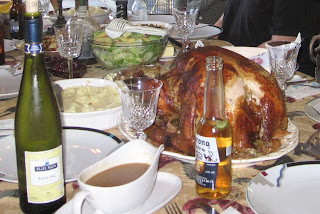I was sent an email about handicapping the current election in Peru.
It was sent by a North American colleague that has an interest in doing business in Peru.
I am sharing with you much of my reply and how I see the election issue and outcome.
Sent: Saturday, May 07, 2011 5:06 PM
To: J. Mark Wallach
Subject: Election handicapping
To: J. Mark Wallach
Subject: Election handicapping
Hey Mark,
I just spoke to a Peruvian expat who lives in Pittsburgh. He said is well-to-do brothers in Peru are moving all the money they can out of Peru in anticipation of the presidential elections.
What's the betting like on the election's outcome?
It was sent by a North American colleague that has an interest in doing business in Peru.
I am sharing with you much of my reply and how I see the election issue and outcome.
From: J. Mark Wallach
Sent: Monday, May 09, 2011 2:05 PM
To: XXXXXXXXXXXXXXXXXXXXXXXXX
Subject: RE: Election handicapping
Sent: Monday, May 09, 2011 2:05 PM
To: XXXXXXXXXXXXXXXXXXXXXXXXX
Subject: RE: Election handicapping
Hola XXXX:
Interesting time in Peru. Many here feel the country has made a lesser of two evils choice for the second round of elections. When Humala surged in the polls prior to the first election the dollar soared and the bolsa crashed. As Keiko has closed ground, and today passed Humala in the polls, the market and Soles have recovered. The choice that many Peruvians are saying it is basically Nationalism versus Familiar Corruption. The financial markets appear have a greater comfort level with the later.
The investment concerns about Humala are centered around his association with Chavez and many misstatements from a non-impartial press. The misstatements have many scared about what he will do to the country even though he has clearly laid out a plan that details what he says he will do.
The basis of his plan appears to have the intent in my opinion to essentially undo much of the corrupt practices put in place by his competition's father: Alberto Fujimoro. While some of the nationalism is extreme, my interpretation is that his ideas are a better choice for the country over the next five years. Unfortunately though with so much propaganda and self interested statements, lies, being put about the media, even if elected he may lose the continued investment Peru has enjoyed to carry out his plan, making the current media statements a self-fulfilling prophesy: a failure.
Additionally many people do not trust Humala nor that he will stick to his plan. The fears include assets being confiscated and pension funds being spent.
A concern that has not been raised so much about Humala that is more concerning to me is his association with the political machine in Brazil and what will Peru lose to benefit those allies.
The greatest irony I personally see in the choices, Humala and Fujimori, is that the country is concerned about Humala:
- Closing the congress
- Changing the constitution
- Taking control of the media
- Proximity to Chavez
The irony is Alberto Fujimori:
- Closed the congress
- Changed the constitution
- Bought the media
- Provided Chavez safe haven in Peru after a failed coup by Chavez
Your question about handicapping- as it stands now, Keiko has momentum and has passed Humala in the polls. Without anything changing as far as their political comments changing Keiko should win the election.
How can either candidate secure the election and distance themselves from the other?
Keiko can solidify the election if she comes out with a strong stance against corruption and commits to leaving her father in jail: allowing the judiciary to deal with that issue. Those opposing Keiko are in opposition to her because they remember what was stolen from the country and cannot forgive the Fujimori’s. Admitting the family made mistakes and committing to not repeating those mistakes would solidify her position.
Humala can gain support by including some of the Free Market proponents in his campaign. If he can eliminate the concern of foreign investors establishing a solid free market policy much of the concern will leave the electorate. One such way is to find a way to include Pedro Pablo Kuczynski, PPK.
You must remember that much of the opposition is from the large corporations that have benefited from under the table deals with the Peruvian government dating back to Fujimori. Examples include contracts with the pension system investment companies, telephone companies, and the government itself in its hiring practices (the majority of government workers in Peru are contracted and are not participants in the in the Peruvian employee rights systems including planea or retirement plan).
I have attached several links below that may assist you in understanding the issues more.
Market reaction- http://www.bloomberg.com/news/2011-05-09/fujimori-rises-in-peru-presidential-poll-ahead-of-run-off-vote.html
Brazil Connection- http://www.livinginperu.com/blogs/features/2150
Hope this helped,









